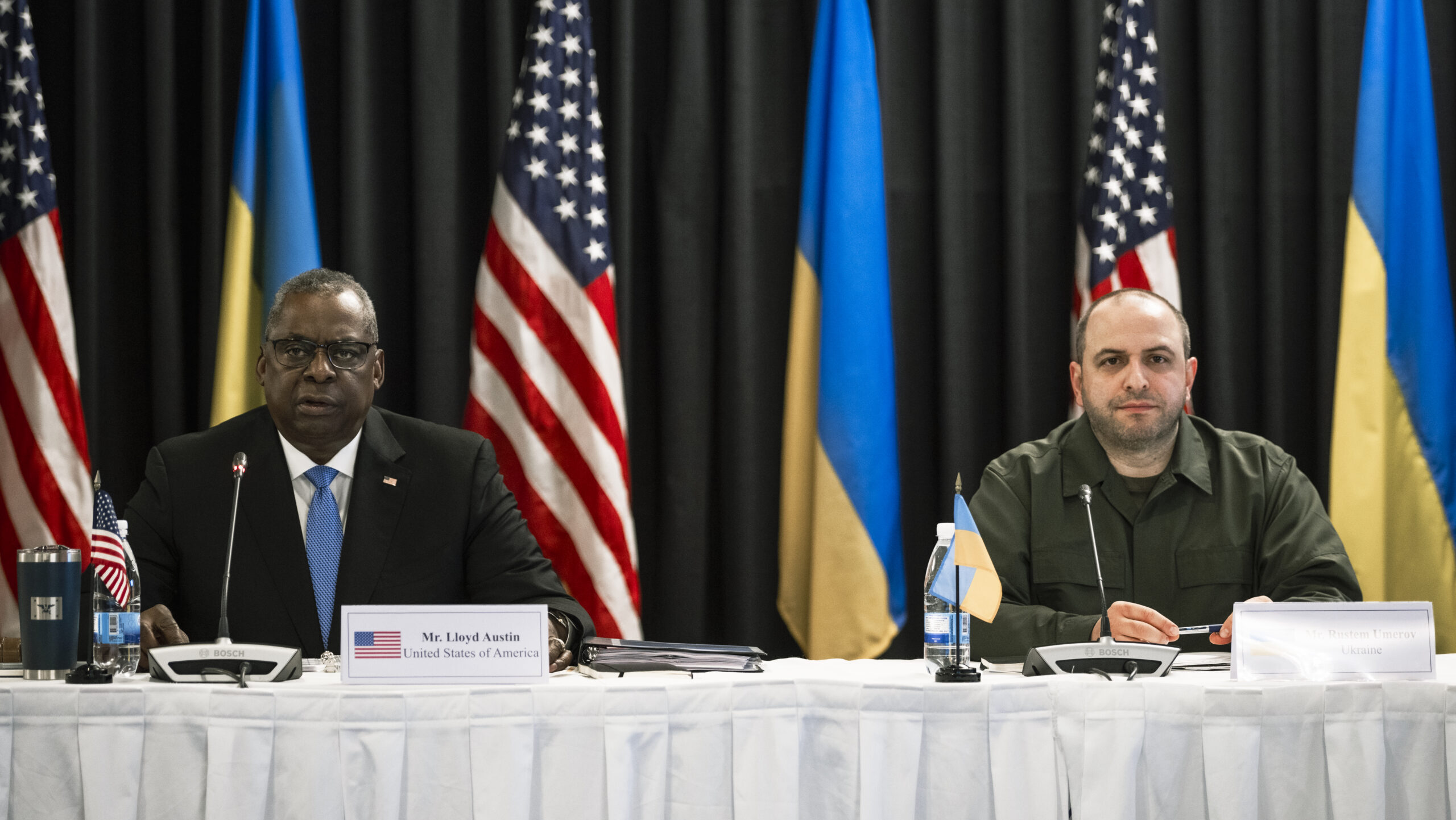TIM MARTIN

Ending the flow of US and European military supplies to Ukraine would so damage Kyiv’s war effort that a Russian “conquest” of Ukraine is “by no means impossible,” according to a leading US military think tank.
A report from the Institute for the Study of War, published Thursday, says a Russian victory could also have profound repercussions for European security, leading “a battered but triumphant Russian army right up to NATO’s border from the Black Sea to the Arctic Ocean.”
Leaning on evidence from US intelligence that estimates 90 percent of the portion of the Russian army that entered Ukraine at the start of the war in February 2022 has been destroyed, the report explains that still those heavy “manpower losses” on the Russian side have been replaced. Meanwhile, Moscow is enjoying new-found industrial success by ramping up weapons production “to make good their material losses at a rate much faster than their pre-war capacity had permitted.”
A Russian victory would bring with it a much more formidable Russian Army, strengthened by considerable combat experience in Ukraine and “considerably larger” than that of the force established before the war.
Additionally, the authors expect Russia’s economy to “gradually recover as sanctions inevitably erode” and Moscow to finds ways around those that remain.
“Over time it [Russia] will replace its equipment and rebuild its coherence, drawing on a wealth of hard-won experience fighting mechanized warfare,” the document states. “It will bring with it advanced air defense systems that only American stealth aircraft — badly needed to deter and confront China — can reliably penetrate.”
Despite the warning of a Russian victory and its potentially concerning aftermath for Western powers, the report makes clear that US and NATO allies possess the military capability to defeat Moscow, even if Russia was to occupy both Ukraine and Belarus. Minsk has been sympathetic to the Russian cause throughout the war, approving of Russian fighter jets to be stationed at its air bases over the course of the conflict.
The report offers up a detailed account of the high cost the US is likely to pay for “allowing Russia to win” in Ukraine, largely based around the Pentagon being forced into bolstering defense and deterrence against a “renewed” Russian threat. Those hypothetical future plans would have to include “a sizable portion” of US ground forces and “a large number” of stealth aircraft being deployed to or stationed in Europe.
“Building and maintaining those aircraft is intrinsically expensive, but challenges in manufacturing them rapidly will likely force the United States to make a terrible choice between keeping enough in Asia to defend Taiwan and its other Asian allies and deterring or defeating a Russian attack on a NATO ally,” claim the authors.
The Institute for the Study of War analysis coincides with Russian President Vladimir Putin doubling down on plans for a Russian victory over Ukraine during his annual news conference in Moscow on Thursday.
“There will be peace when we achieve our goals, they haven’t changed,” he told Russian and foreign media. “Practically along the entire line of contact [in Ukraine] our armed forces, are, to put it modestly, improving their position. They are in an active stage of operation.”
Elsewhere reports emerged of Ukrainian forces firing ammunition rounds sparingly because of a troubling shortage and amid US lawmakers in dispute over a supplemental spending package of $61.4 billion for Kyiv.
The package, part of a wider $105 billion budget request which also includes funding for Israel and the Indo-Pacific, has proven politically divisive and was previously blocked by Republicans who want tighter immigration and border security reform tied to the bill. Democrats and the White House have vowed to find a way to see the bill passed.
In a meeting with Ukraine President Volodymyr Zelenskyy earlier this week, US President Joe Biden urged Congress not to give Putin a “Christmas gift” by delaying a decision on the spending bill beyond the holiday recess.
Difficulties around funding the war were made worse on Thursday when Hungarian Prime Minister Viktor Orban blocked a €50 billion ($54 billion) aid package to Ukraine during a European Union (EU) meeting in Brussels, Belgium. The issue will be revisited by EU leaders next month, according to Al Jazerra. Orban vetoed Ukraine funding in an effort to try and convince the EU to unfreeze money for Budapest which has been on hold over rule of law concerns.
No comments:
Post a Comment